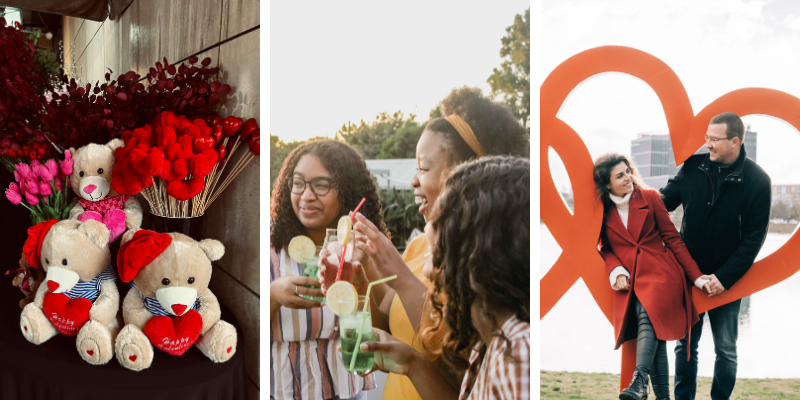Event producing is undoubtedly an exciting and fulfilling career, but let's face it — it also comes with its fair share of stress and pressure. From having to meet tight deadlines to managing multiple responsibilities at once, it’s not shocking that event planning is the third most stressful career in 2023. In order to continue putting on phenomenal events, it’s essential that you prioritize your mental health. Here are 7 mental health tips designed to keep event organizers feeling their best.
1. Prioritize Self Care
When you feel like you’re being pulled in all different directions, self care may be the last thing on your mind. However, self care isn't just a luxury afforded by people who have it all together, it’s a necessity to keep up levels of productivity and creativity. Remember to take breaks, get enough sleep, and engage in activities that rejuvenate both your mind and body. This mental health tip will help you feel recharged and ready to tackle your next event.
2. Learn Effective Time Management Skills
As an event planner, you’re constantly juggling multiple tasks at once. Having the ability to properly manage your time is key to not feeling like you’re drowning in work. Do this by breaking down tasks into manageable steps and creating realistic timelines. This will not only boost your productivity so your work time is spent effectively, but it also ensures that you can actually relax in your off time. Don’t forget that there are many event planning apps and tools at your disposal that make it easier to delegate tasks or stay organized.
.png?width=800&height=400&name=A%20black%20and%20white%20clock%20next%20to%20a%20clipboard%20that%20says%20Time%20management%20in%20front%20of%20a%20yellow%20background.%20(1).png)
3. Build a Support System
Every great event leader needs an equally devoted team. Seek out vendors, suppliers, and employees that care about your event just as much as you do. Having a strong support system by your side is extremely important to the success of your event, especially for those unexpected crisis moments. Even if reaching out may seem tough or uncomfortable, remember that leaning on your support system in times of need is not a burden but a necessary part of achieving success.
4. Set Boundaries
One way to prevent burnout is by setting proper boundaries for yourself. Boundaries help you understand your limits so you can deliver the best work possible. These can look different for everyone, but here are some examples boundaries you can set:
- Create a set time frame for responding to work-related emails, phone calls, and texts.
- Know the scope of your abilities as an event producer and when to outsource to a third-party for help.
- Establish a limit on the size or complexity of events you take on at a given time to prevent getting overwhelmed.
.png?width=800&height=400&name=A%20group%20of%20four%20people%20talking%20in%20a%20circle%20while%20at%20a%20conference.%20(1).png)
5. Practice Mindfulness and Self Awareness
The events industry moves quickly. Mindfulness is simply about paying attention to what's happening, right now, without any judgment. Deep breathing, meditation, and yoga are all mindful practices that can boost clarity so you can proceed with your daily tasks with focus. If you’re short on time, a 5-minute check-in each morning can be helpful for grounding yourself. How are you feeling? What needs are currently or not currently being met? What tasks are most important to prioritize today? Asking these questions can make a big difference in how you approach your day-to-day tasks and long term success.
6. Choose Positivity
Feedback is inevitable in event planning, but not all of it may be positive. It can be easy to hold onto the negative feedback and overly criticize yourself, even if it’s just small stuff. Instead of seeing this as something that knocks your confidence, see it as an opportunity to grow your skills. Remember not to take anything too personally. Celebrate your successes, but also learn from challenges and apply those insights to future events.
.png?width=800&height=400&name=A%20finger%20reaching%20out%20and%20pressing%20a%20green%20smiley%20face%20alongside%20grey%20sad%20faces.%20(1).png)
7. Plan for Recovery Days
Once the post-event high has worn off, it can leave you feeling completely drained. One of the best mental health tips for event producers is to plan to have one to two recovery days after an event. When you’re in the process of planning, look ahead in your calendar and block off a designated day just to relax. Then spend that day resting and nourishing your body so that when you get back to your work, you can give it your all. If you don’t take any time to recharge, it can have serious consequences on your mental and physical health.
Conclusion
When you’re feeling the best you can be, it reflects in your events. Investing in your mental health Integrating these mental health tips into your routine will help you feel your best.
Want to take one more thing off of your plate? Let Passage set up ticketing for your event. Just give us your event details and we’ll do it all for you! Set up an onboarding with our world-class support team to get started.

%20(1).png)









